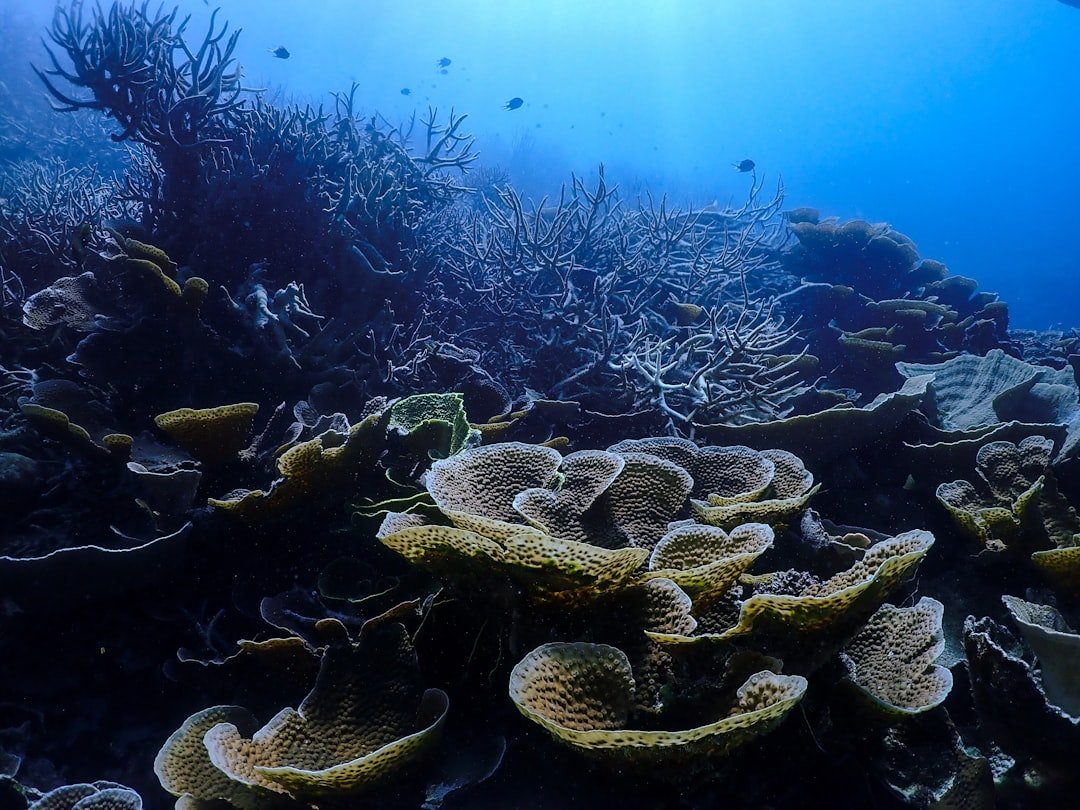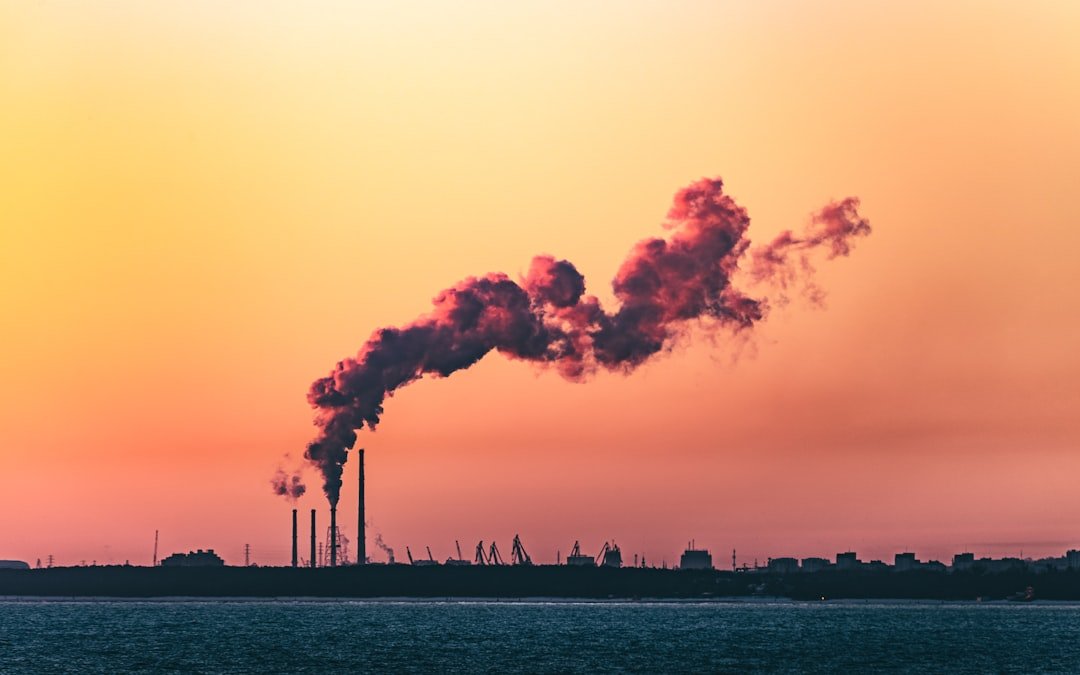Sea level rise is one of the most obvious and concerning effects of climate change, as stated in The Ocean’s Cry: Understanding the Impacts of Climate Change. Sea levels are rising as a result of glaciers & polar ice caps melting at a never-before-seen rate due to rising global temperatures. As per the Intergovernmental Panel on Climate Change (IPCC), sea levels have risen by about 8 to 9 inches since 1880. If current trends continue, it is predicted that sea levels could rise by an additional 1 to 4 feet by the end of the century. This phenomenon has practical ramifications for coastal economies, ecosystems, and communities; it is not just a statistic.
Key Takeaways
- Rising sea levels are a result of melting ice caps and thermal expansion, leading to increased coastal flooding and erosion.
- Ocean acidification, caused by increased carbon dioxide absorption, threatens marine life and disrupts the food chain.
- Coral bleaching, a result of rising sea temperatures, leads to the loss of vital habitats for marine species.
- Changes in ocean currents can disrupt weather patterns and impact marine life migration and breeding patterns.
- The impact on marine life includes loss of habitat, changes in species distribution, and decreased food availability.
For low-lying areas, the effects of rising sea levels are especially severe. Storms and high tides are already causing more flooding in cities like Jakarta, New Orleans, and Miami. Drinking water supplies & agricultural productivity are at risk in some areas due to saltwater intrusion into freshwater aquifers. In the upcoming decades, millions of people may become climate refugees as a result of population displacement brought on by rising sea levels. In addition to having an impact on human habitation, land loss also upends regional economies that depend on agriculture, tourism, and fishing.
Often overlooked in favor of more obvious effects like rising sea levels, ocean acidification is another serious effect of climate change. A large amount of the carbon dioxide in the atmosphere is absorbed by the oceans as a result of rising greenhouse gas emissions. This absorption causes a chemical reaction that makes seawater more acidic by lowering its pH. Ocean acidity has risen by roughly 30% since the start of the Industrial Revolution, and if emissions don’t stop, it may rise by an additional 150% by the end of this century.
For marine organisms like corals, mollusks, & certain plankton species that depend on calcium carbonate to form their shells & skeletons, the effects of ocean acidification are especially noticeable. According to research, for example, higher acidity can make it more difficult for oysters to form their shells, which can result in sharp drops in oyster populations. Since many fish species depend on these organisms for sustenance, this decline has a ripple effect on the entire marine food web in addition to the species itself.
The economic consequences are also worrisome; sectors like shellfish farming are already suffering as a result of acidification’s effects on yields. Coral reefs, sometimes known as the “rainforests of the sea,” are some of the planet’s most biodiverse ecosystems. But they also react very strongly to changes in their surroundings. Coral bleaching happens when the zooxanthellae, which are symbiotic algae that reside in the tissues of corals and give them vital nutrients & their vivid colors, are expelled. Stressors like pollution, rising sea temperatures, and ocean acidification usually cause this expulsion.
Corals are more prone to illness and death when they bleach. Coral bleaching events have become much more frequent and severe in recent years. Since 2016, for instance, the Great Barrier Reef has seen multiple mass bleaching events that have resulted in a considerable loss of coral. The effects of coral bleaching go beyond the decline in biodiversity; millions of people rely on healthy reefs for tourism and fishing, and their livelihoods are at risk.
As climate change worsens, coral reefs are providing more & more important ecosystem services, such as protecting the coast from erosion and storms. Because ocean currents disperse heat and nutrients throughout the planet, they are essential in controlling the climate. However, these currents are changing due to climate change, which may have significant effects on weather patterns and marine ecosystems. One significant current system that aids in controlling temperatures in North America and Europe, the Atlantic Meridional Overturning Circulation (AMOC), is beginning to wane as a result of Greenland’s ice melting and an increase in freshwater input from rivers.
Changes in ocean currents have the potential to drastically alter weather patterns. An AMOC slowdown, for instance, might cause more extreme weather events in North America and colder winters in Europe. Also, by changing the distribution of nutrients & migration patterns, shifting currents can have an impact on marine life. Fish stocks & other marine resources may decline as a result of species that depend on particular temperature ranges or nutrient availability losing their habitats entirely or seeing changes in it.
Climate change has complex and wide-ranging effects on marine life. Many species are compelled to migrate toward cooler waters as ocean temperatures rise, which frequently results in changes in ecosystem dynamics and biodiversity. Commercially significant fish species, like haddock and cod, have been seen migrating northward in pursuit of appropriate habitats. In addition to having an impact on the species, this change has important ramifications for local economies and fisheries management.
Also, altered predator-prey relationships may result from climate change-induced changes in marine habitats. For instance, species like jellyfish may spread unchecked as warmer waters move northward because there aren’t any natural predators. Harmful algal blooms may arise from this, endangering human health and further upsetting marine ecosystems. Because marine life is interconnected, modifications that affect one species may have repercussions that ripple through the food chain and ultimately affect entire ecosystems.
Hurricanes, typhoons, and heavy rains are examples of extreme weather events that are becoming more frequent & intense due to climate change. Hurricanes become more powerful with higher wind speeds and more rainfall when ocean temperatures rise because they give storms more energy. Among the most active Atlantic hurricane seasons ever, the 2020 season saw 30 storms, several of which caused catastrophic damage throughout the Caribbean and the southeast United States. Marine environments are directly impacted by these extreme weather events as well.
While heavy rainfall can introduce pollutants into coastal waters, causing further stress to marine ecosystems already affected by climate change, storm surges can cause habitat destruction and coastal erosion. It may take years or even decades for the environment to recover from the long-term harm caused by such occurrences. Also, as their environments become more unstable, communities that depend on tourism or fishing may experience financial difficulties. Globally, marine ecosystems are being severely disrupted by the cumulative effects of climate change. Habitats like coral reefs, seagrass beds, & mangroves are in danger due to changing ocean chemistry and rising temperatures.
Important functions like carbon sequestration, coastal protection, and fish breeding grounds are all provided by these ecosystems. Both biodiversity and resistance to environmental stressors may decline as a result of the loss or degradation of these habitats. Invasive species may also flourish in changed environments, outcompeting native species for resources and upsetting long-standing ecological balances. Warmer waters might, for instance, enable some invasive fish species to spread into new areas where they can outcompete native fish populations for habitat and food. In addition to endangering the biodiversity of the area, this disturbance makes conservation efforts to save endangered species more difficult.
For coastal communities, climate change has significant and varied economic ramifications. Changes in marine ecosystems have a direct impact on the fishing and tourism industries, which are vital to many coastal regions. Because of overfishing or habitat loss brought on by climate change, local fishermen are facing lower catches & unstable incomes as fish stocks decline. Similar to this, tourists who come to these dynamic ecosystems for diving and snorkeling may be turned off by the degradation of coral reefs.
Also, infrastructure in coastal areas is directly threatened by rising sea levels. Homes, businesses, and public facilities may sustain damage from increased flooding, necessitating expensive repairs and possibly displacing residents. As the risks of extreme weather events rise, insurance premiums may also rise, placing additional pressure on local economies already feeling the effects of climate change. The construction of seawalls and the restoration of natural barriers are examples of adaptation measures that call for large investments from the public and private sectors. All things considered, the way our oceans are changing due to climate change has significant ramifications for both marine life & coastal communities.
Ocean acidification, extreme weather events, and rising sea levels are all interconnected, which emphasizes the urgent need for all-encompassing strategies to mitigate the effects of climate change while promoting resilience in vulnerable areas worldwide.




[…] There has been a growing concern about the impact of carbon emissions on the environment, with celebrities using their platform to raise awareness about the issue. One related article discusses the effects of climate change on oceans, highlighting the importance of protecting marine ecosystems. Another article explores the concept of geoengineering as a potential solution for climate change, while a third article delves into the importance of balancing environmental concerns with ethical practices in sustainable initiatives. To learn more about these topics, check out this article. […]